#Furis rubian
Text
Wesen Moodboards
Furis Rubian (Latin: Red Devil/Red Fury)
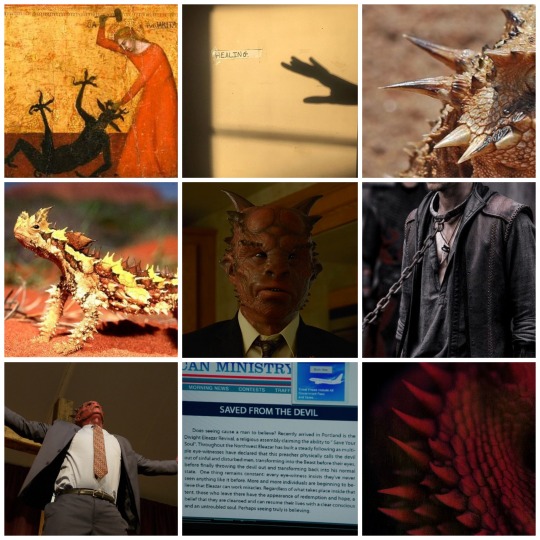
In their woged form, Furis Rubians have often been mistaken as the Devil throughout history. In fact, during the dark ages, the Pope helped propagate this mistaken identity by chaining some up in the basement of St. Peter's Basilica, occasionally bringing them out for the general public to see, to instill the fear of Hell into the masses.
Despite their intimidating look, Furis Rubians are not violent creatures, nor do they condone violence either. Normally having a calm demeanor, they only become aggressive as a last resort, typically in self-defense. Some Furis Rubians choose to use their woged appearance for good and attempt to help others through spiritual and religious healing.
Notables: Dwight Eleazar
9 notes
·
View notes
Photo


Screenshots of Nick looking up articles on Dwight Eleazar from Season 5′s “The Believer.”
1 note
·
View note
Text
aco wesen au
Kassandra - Apgadnieks - Husky-like Wesen, courageous, willing to fight larger enemies, especially in defence of others, able to thrive on limited resources. She’s technically 1/8 Dämonfeuer, 1/8 Lowen, ¼ Apgadnieks and 1/2 Anubis
Markos - Eisbiber - Non-violent Beaver-like Wesen, curiosity and personal projects get them in trouble with other Wesen (ie; Markos’s failed business ventures).
Nikolaos - Blutbad - Wolven Wesen, prone to a pack mentality that enhances their bloodlust, exceedingly loyal to the pack and their family unless given reason to believe one of their own is a traitor (say idk, the word of an Oracle). They flip between showing the utmost viciousness to those they consider a threat and undying loyalty to those they consider friends.
Myrinne - A Vorherrscher (Prevalence, the name given to a child with parents who are two different types of Wesen) - Her mother was an Apgadnieks but Leonidas was a Lowen/Dämonfeuer, though the Lowen side is the more prevalent genome, she has the temperament of an Apgadnieks but the skills and strength of a Lowen.
Pythagoras - Anubis - Jackal-like Wesen, very protective, often entrusted with artefacts, very secretive about their Wesen nature for fear of being hunted.
Deimos/Alexios - Dämonfeuer - A Draconic Wesen with the ability to produce fire and smoke, considered the most physically powerful Wesen, often overcome with hubris due to their prowess and affinity for martial arts.
I also feel like the majority of the Spartan population, including Stentor, would be Dämonfeuers as they view dying in battle as the greatest honour and often wage battle to save the lives of their family, be it parents, spouses or children. Also, probably a fair share of Blutbaden in there.
Spartan society is pro-Vorherrscher whereas the majority of Wesen society has a negative view of mixed Wesen couples due to the higher risk of exaggerated behaviours, particularly aggression and their vulnerability to going completely feral.
The Cyclops - Coyotl - “Known for being mean, nasty and all-round bullies.”. Coyotl surrounds themselves with similar Wesen to form gangs and are known to have the strength to maul victims down to the bone.
Phoibe - Klaustreich - Alley-cat Wesen, female Klaustreich’s tend to live in less than reputable areas (like Kephallonia), and the same goes for their work. Unlike male Klaustreich, however, they are more prone to looking out for their friends. Anthousa and the other hetaerae are also Klaustreichs.
Barnabas - Fuilcré - Oxen Wesen, a strong sense of fealty and piety, strong survivalist instinct, highly emotionally affected by rifts between friends and family
Herodotos - Luisant-Pêcheur - Otter-like Wesen, less skittish than Eisbibers, they are gentle and placid though they are highly intelligent and creative. This creativity, however, can cross the line into base cunning and schemes if left with no other options.
Aspasia - Vulpesmyrca - Black fox Wesen, Vulpesmyrca often deceive or lure prey, feeding into their own opportunistic natures, which conversely works well for politics.
Perikles - Jägerbar - One of the oldest species of Wesen, Jägerbars (bear Wesen) are the most capable of integrating into civilised society and abandoning their more barbaric rituals, as long as they keep away from alcohol, which might explain Perikles’s hesitance to attend his own symposiums.
Many Athenians are likely Sharbflicke, Owl-like Wesen who are known for being self-conscious over their woged (true) form. I can kinda see Athenian society praising their characteristics, unlike other regions.
However, their soldiers are comprised of Taureus-Armenata, a bull-like Wesen considered to be the most honourable and steadfast fighters.
Sokrates - Fuchsbau - Fox Wesen, other Wesen tend to ignore or not trust anything they say, their reputation for lying or skirting the truth reminds me of Sokrates’s “I said the words but I never actually said anything” line.
Hippokrates - Furis Rubian - Red-skinned horned Wesen, though, despite their appearance, they are often religious and spiritual healers and will exhaust every possible route rather than become violent. Hippokrates’s diversion from the Gods would likely spark those against him to explain his appearance as proof that the Gods are punishing him for “impiety”.
Alkbiades - Ziegevolk - Goat Wesen, pretty much the embodiment of the lovers not fighters trope, prone to bouts of arrogance but otherwise harmless, they often pursue multiple partners and are able to produce an intoxicating pheromone.
Daphnae and the other Daughters of Artemis - Weten Ogen - Lynx-like Wesen, they partake in numerous rituals and trials to prove their worth and are experts at ambushing their prey. They take great pride in their lineage and respond with aggression should someone insult their rituals.
Xenia - Wasser-Zahne - An aquatic reptile Wesen, Wasser-Zahne are highly aggressive, especially when motivated by money, they often prey on those smaller and weaker and are willing to kill those they find obnoxious.
Also side note - most mercenaries are typically Nuckelavees (Horse-like Wesen, cold, calculating, don’t care if they steal or murder to complete their task), Hundjäger (precise, cold-blooded hound Wesen) and Mauvais Dentes (Sabre-cat Wesen, prone to bloodshed, typically only found in the employ of those rich enough to afford their services).
Most of the Cultists are Königschlange (King Cobra-esque Wesen, sadistic, enjoy intimidating others, not easily deceived) or Pflichttreue (Snow Leopard Wesen, able to disappear without a trace)
#here have some slapped together notes from my nostalgia watch#headcanons#i would have kyra and odessa here too but i literally could not think of what wesen they would be
0 notes
Text
Reptillian Wesen my beloved!
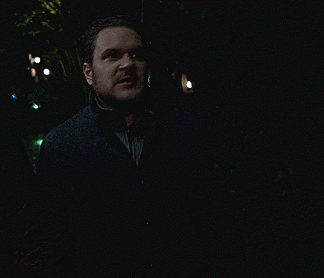


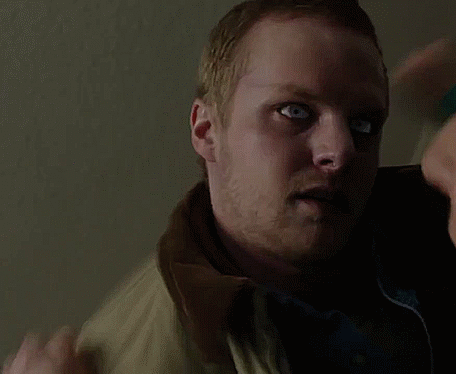



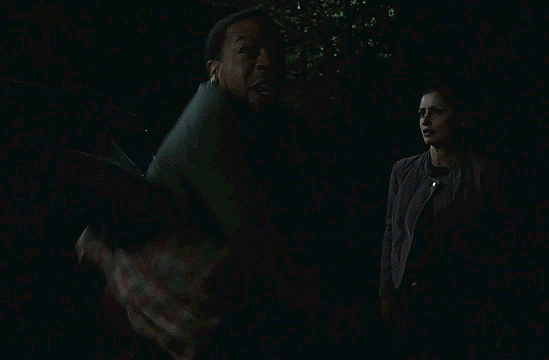





#grimm#nbc grimm#Wesen#Woge#Gifs#Wettbewerbsgewinner#Wasser zahne#Vibora dorada#Varme tyv#Skalenzhane#Skalengeck#Quijada vil#Phansigar#Lausenschlange#Königschlange#Genio innocuo#Gelumcaedus#Furis rubian
5 notes
·
View notes
Text
GRIMM WESEN SHOWDOWN ROUND 5/19
Wesen below:
Fuchsbau
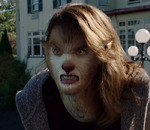
Fuchsteufelwild

Fuilcré
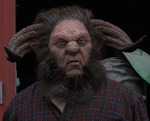
Furis rubian

Gedächtnis Esser

0 notes
Text
Wesen’s Hope For Salvation: An Observation on the World of NBC’s Grimm
The one thing that Grimm hasn’t really addressed that I would be sort of interested in seeing is how Wesen who are religious go about their lives. We saw a Wesen church in “The Good Shepherd,” but there it was more of a visual gag than anything (Seelenguter being lead by a Blutbad), and the episode was more concerned with the scam/murder that was going on in the church.

In “The Believer,” we saw a Wesen that used his powers to convert people to Christ (claiming that he was taking the Devil into him, when he was really just woging) and Monroe mentions that that same Wesen--- the Furis Rubian--- was used by the Catholic Church as propaganda to instill fear of the Devil in peasants in the Middle Ages. And we see in the same episode that other church-going people also saw said person as a demon, leading credence to the idea that Wesen were what sparked a lot of witch hunts. On a sort of side note, the episode “Stories We Tell Our Young” had a couple whose son became a Grausen (a human infected by a parasite that gave them a corpse-like appearance and super strength), but due to their religious beliefs (and lack of knowledge of the Wesen world) they simply thought the child was possessed by a demon (and who can blame them, he was pretty scary when he sort-of woged).

What I’m trying to get at is that throughout the show we have seen Wesen who are conflicted about being Wesen. Rosalee’s backstory is that she got involved with the wrong people because of how distraught she was over being a Wesen, and Juliette’s friend Alicia wasn’t willing to woge in front of Juliette even when the latter said she knew about the Wesen world. And then there are the Lebensauger’s like Ryan the intern, who are so hideous to the rest of Wesen society that even they don’t want to woge, or acknowledge they’re Wesen.
But these are all general cases of angst, like you’d see on any show involving people with supernatural powers. What I am wondering is how religious Wesen deal with their existence. It has been mentioned in both the pilot and the book The Icy Touch, and the aforementioned episode “The Good Shepherd” that Wesen do go to church, despite historically being perceived as demons. There are also other Wesen of other faiths, like the Bhari Kadama in India (an elephant-type Wesen), who were harassed by villagers who believed they were demons that insulted Ganesha. And presumably the Inugami and Kitsune we see in Season 5 would have practiced Shintoism in some form.
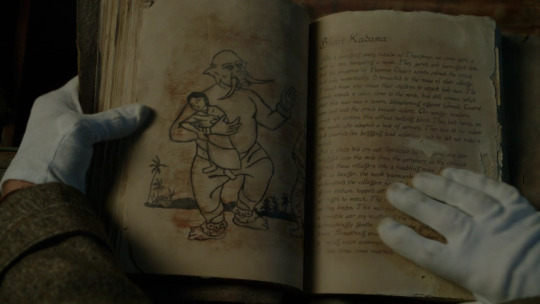
Working off of Christianity (because that’s what I am more familiar with), there is a whole genre of folklore that deals with creatures trying to be saved and accepted by Heaven, only to be turned down by priests and humans. What if in the Grimm world these were loosely-based on actual encounters between Christian humans and Wesen? Do modern-day Wesen who attend church carry a sense of self-loathing due to their nature? Do they actively deny the part of them that is more animal-like in order to feel accepted by their beliefs? And how do they interact with other Wesen of other faiths who do not necessarily believe the same things they do regarding their non-human nature? (The show implies that Wesen are a separate evolutionary branch from humanity, but just like the real world, not everyone may believe in that, and since Heaven and Hell exist in Grimm, clearly there is more going on than just hard science... The fact that the show uses ghosts and demons sparingly more than proves that.)
With the show ending in a few episodes, it’s doubtful that there will be any real focus on this plot point, but it is a pretty interesting idea that I would like to see explored in some official capacity in the near future, maybe in some tie-in stories.
#grimm#grimm tv series#grimm nbc#wesen#christianity#folklore#religion#analysis#text#long post#headcanon#headcanons
5 notes
·
View notes
Text
So in Aunt Marie’s Book of Lore, the entry on Hexenbiests and Zauberbiests has a retelling of the Grimm story “The Girl Without Hands.” The implication, it would appear, is that the Devil/Evil Spirit in that fairy tale is actually a Zauberbiest.
This brings up the interesting idea that most, if not all, Devils in fairy tales are actually Zauberbiests in the Grimm universe. There are a lot of variations of the tale where someone makes a deal with the Devil to have wealth or have a bridge built, among other stories.
Within the show itself, the only Wesen singled out as being mistaken for the Devil are the Furis Rubians. But it seems really likely that a few other Wesen had the same influence over human folklore. My other guess would be the Ziegevolk, since the idea of the Devil having goat horns and legs is a common image.
Just my thoughts on this subject.
8 notes
·
View notes